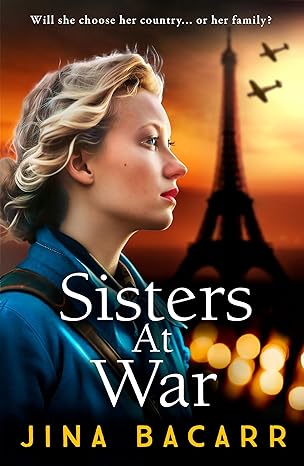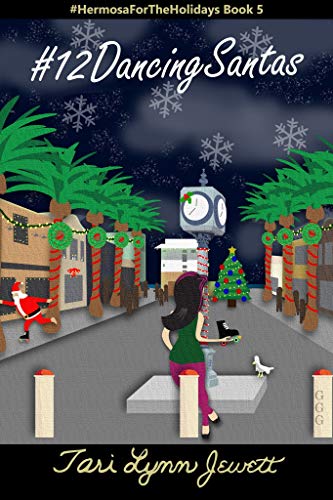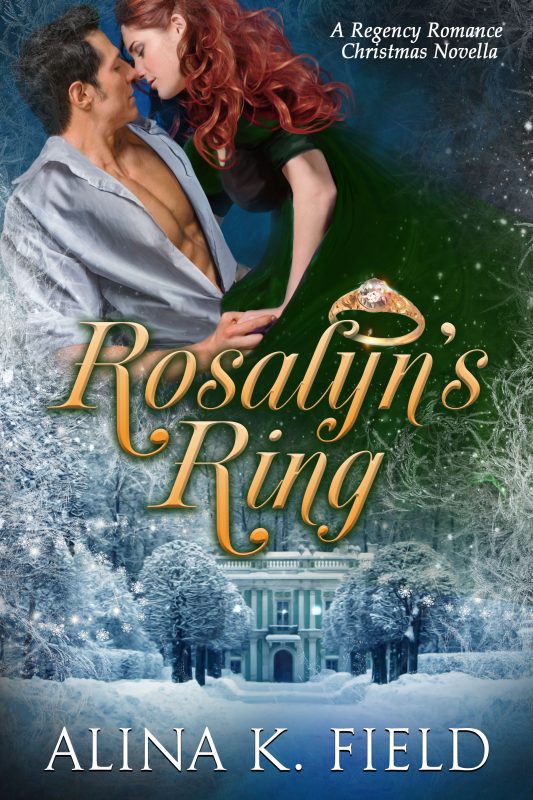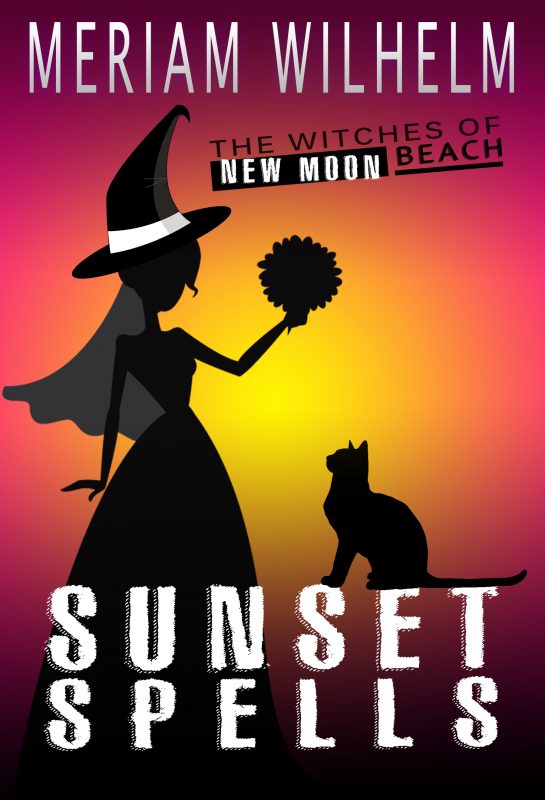OCCRWA November 2011 Online Class — “The Tiny Art of Elevator Pitches: Making Every Word Count!†with Carrie Lofty
October 26, 2010 by A Slice of Orange in category Archives tagged as Online Class********** permission to forward **********
Hi everyone! Check out the exciting online classes offered by the Orange County Chapter of RWA!
“The Tiny Art of Elevator Pitches: Making Every Word Count!†with Carrie Lofty
November 15 – December 11, 2010
Enrollment Information at http://www.occrwa.org/onlineclassNov10.html
COST: $20 for OCC members, $30 for non-members
If you have specific questions, email occrwaonlineclass@yahoo.com
ABOUT THE CLASS:
You have 30 seconds to make an impression. But how do you reduce tens of thousands of words down to 30 or less? What to leave in? What to ignore? How to give those 30 words punch and drama?
An “elevator pitch†can be defined as a bare-bones summary of your novel – but it is really something much more. This succinct distillation can help not only in query letters and networking, but in finding your hook and focusing your writing before you even start!
Author Carrie Lofty will share the elevator pitches that got her in the door, along with her techniques for making them concise and effective. She will look at the four plot arcs of any romance novel—hero, heroine, external, and romantic—and teach you how to weave all four into the most powerful elevator pitch possible.
ABOUT THE INSTRUCTOR:

Since completing her master’s degree in history, Carrie Lofty has been devoted to raising two precocious daughters and writing full time. Her historical romances have all received four stars from RT Book Reviews, which declared: “Lofty writes adventure romance like a born bard of old.”
In addition to two new historical romances coming out in 2011, her “Dark Age Dawning” trilogy of hot-n-dirty apocalyptic romances, co-written with Ann Aguirre under the name Ellen Connor, will kick off with Nightfall from Berkley Sensation in June.
Enrollment Information at http://www.occrwa.org/onlineclassNov10.html
COST: $20 for OCC members, $30 for non-members
Coming in January 2011–
“Going the Distance: Goal Setting and Time Management for Writersâ€
with Kitty Bucholtz
January 10 – February 5, 2011
Every New Year’s Eve, as the fireworks explode, we try to figure out how to make our goals into our reality. But what will work for you? In this class, you will be presented with a variety of ways to look at goal setting and time management specifically designed for the writer. Whether you are a plotter or a pantster, this interactive course will help you design a personalized game plan.
COST: $20 for OCC members, $30 for non-members
Check out our full list of workshops at http://www.occrwa.org/onlineclasses.html
Want to be notified personally two weeks before each class? Be sure you’re signed up for our Online Class Notices Yahoo Group! Sign up at the bottom of http://www.occrwa.org/onlineclasses.html or send a blank email to OCCRWAOnlineClassNotices-subscribe@yahoogroups.com
********** permission to forward **********
0 0 Read moreThe day Stephen J. Cannell talked with Jina Bacarr at OCC
October 11, 2010 by A Slice of Orange in category Archives tagged as A Writer's Life, author, Confessions of a Podcast Goddess, novels, Stephen J. Cannell
Stephen J. Cannell talks w/ Jina Bacarr
Uploaded by Jina_B.
Everyone who attended the OCC Meeting back in 2007 when Stephen J. Cannell was our main speaker will never forget it.
I still have the notes I took that day…
And I have the video. So as a special tribute to Mr. Cannell who passed away recently, here is the video I did with him that morning after the Published Authors Workshop.
He was a great friend to OCC and to all writers everywhere.
Best,
Jina
The Blonde Samurai: “She embraced the way of the warrior. Two swords. Two loves.â€
Jina Bacarr is also the author of The Blonde Geisha ,Cleopatra’s Perfume, Naughty Paris, Tokyo Rendezvous, a Spice Brief, and Spies, Lies & Naked Thighs
visit my website: http://www.jinabacarr.com/
Planning for a Writing Push by Kitty Bucholtz
October 9, 2010 by A Slice of Orange in category Archives tagged as It's Worth It
What must be done before the push?
I’m going on a weekend writing retreat with my writer’s group at the end of the month. One of the first things I do when preparing for an event is check my calendar. Australian taxes are due that weekend so I need to make sure I’ve mailed them before then. If I have any blogs due around that period, I’ll write them earlier and set them to post on the correct day.
In order to focus on getting the most amount of writing done that weekend, we’re planning some very easy meals – bagged salad, baked chicken, apples and nuts for snacks. Because I’m the primary grocery shopper at home, and because John is having a Guy’s Xbox Party while I’m gone, I’ve already started buying things that are on sale (cookies this week! Okay, so it won’t be all nutritious snacks!) that I think we’ll need for our weekend events. The day I get home is a birthday party, so I’ll make sure the card and gift are ready, too. This is all shopping I’ll have to finish at least a day or two before I leave. (And I have to keep up with all my homework, too!)
Also, if there’s time, I’ll try to get some brainstorming done, get my work for the weekend organized, etc. Too often, this ends up being the first thing I do during my writing push because I was doing all those other things to get ready to leave. 🙂
What must be done during the push?
It’s easier to decide how I feel about a weekend or week or NaNo if I know what I’m aiming for. Sometimes, just writing every day is a success. Other times, I want to get a certain number of words written, or get to a certain point in the project. When I make a goal, even a range (for example, aim for 50,000 words during NaNo, choose to be happy if I hit 35,000), it gives me a better idea of whether I think I did well, or whether I need to change how I do things in order to get more done next time.
Let me encourage you to make your goals your own. If you don’t write 50,000 words during NaNo or you don’t write a book in a week (BIAW), it’s only a problem if you think it is. There are plenty of ways to choose your goal – a certain number of words or chapters written, a certain amount of editing, finish a section or the project, write a synopsis, write flat out without stopping to think about your choices (this can be fun), write for a certain number or minutes or hours per day or per week, or anything else you can come up with. Be as risky or as safe as you want.
There are some things that need to be done – avoiding distractions – that are more like “things not to do.” Consider using an email vacation reply if your writing push is short enough like a week or a weekend. You could choose not to look at and/or answer email at all until your writing day is over. You could give yourself a one-hour lunch break every day when you can do anything you want – including email. I think you can see now that I think email is the biggest distraction! 🙂 I bought a downloadable program called Freedom that disables my Internet connection for a user-determined number of minutes. That also keeps me from too much Internet research when I want to be writing.
What might you plan to do after?
Depending on the length of the push – a weekend or a month – you may feel nearly overwhelmed by the catch-up work that comes later. I’ve found that sometimes the number of things I put off in November to hit my 50,000-word target have kept me in catch-up mode into January because Christmas takes away most of my “free” time in December. I haven’t always thought NaNo worth it come January. By then I feel so behind, and I often haven’t written much on the project that I just spent a whole month straight working on – so I’ve lost momentum, too.
But if I can plan some time into my calendar for catch-up work, the strain is less. Consider blocking out some time in the first week back for extra email time, laundry, shopping, extra family time, and to organize what you did during the push so that you lose the least amount of momentum. I’ve heard too many friends say they hate taking a vacation because coming back to work after a week or two is punishing. They are overwhelmed at how behind they are or feel they are. Other friends spend a grueling amount of time at work in the week before to try to offset the pain in coming back. It doesn’t matter how you handle it, but if you think about it before you even leave, you may find there are ways to lessen the burden.
I hope this gives you some food for thought as you prepare for your next writing push. If you’re going to do NaNoWriMo this year, some of these ideas may help you get more accomplished without running yourself ragged. I’m going to use these principles for my 3-day writing retreat in a few weeks, and then again for my 3-month summer break from university starting mid-November. I’ll have to adjust the planning for a very short period and for a very long period.
If you have any planning methods that help you during NaNo or BIAW or any other writing push, share them here. It’s always fun to find new ways to get more writing done!
Note: If you’re interested in more on this topic, I’ll be teaching an online class on goal-setting and time management in January for OCC. Check back for more details in the next couple months!

Kitty Bucholtz is the co-founder of Routines for Writers, a web site dedicated to helping writers write more. She writes romance novels, light urban fantasy novels for adults and young adults, and magazine articles. She is currently enrolled in the Master of Arts in Creative Writing program at University of Technology, Sydney.
Ha ha ha – the ins and outs of comedy
October 8, 2010 by A Slice of Orange in category ArchivesLast week, I saw one of the funniest movies I’ve ever seen. The Other Guys, with Will Ferrell and Mark Wahlberg. Maybe it’s just because I was there with my kids, but I couldn’t stop laughing. The great thing was, most of the time, the movie stopped just short of the OTT humor in which Ferrell sometimes indulges, which I find more painful than funny. Ferrell is great when he’s playing the “straight man†which he was in this film. And while there were 15 minutes or so of slight drag in the last third, most of the time it cracked along.
The problem with comedy, is one man’s laugh is another man’s cringe – this applies to books and TV as well as movies. I love the Shopaholic novels (the latest, Mini-Shopaholic, just arrived in the mail today, yay!) and laugh all the way through them, but I have friends who find them irritating. Half the TV shows that are generously classified as sitcom leave me cold, while others, like Seinfeld, crack me up every time.
I learned a lot recently about how and why comedy is funny when I attended a workshop with Hollywood comedy guru Steve Kaplan. Sometimes, the kind of analysis you do in a workshop makes it harder to enjoy books or movies as a reader or viewer. But the great thing about Kaplan’s workshop was that I can still enjoy comedy, and in fact, appreciate it even more, without my tendency to analyze sucking the life out of it.
I also have a greater appreciation those writers who seem to produce effortless comedy. Because I know from experience it’s never effortless—in fact, it’s extremely difficult.
Okay, I’ve told you some of the movies and books I find funny…now how about you tell me yours? Because if there’s one thing we all need, it’s a good laugh!
0 0 Read moreWhat’s In A Name?
October 6, 2010 by A Slice of Orange in category ArchivesI’m always fascinated by the process of coming up with a title for my books.
I always suggest something, of course, and I like some of my ideas better than others. Sometimes they stick, and sometimes they don’t.
Like my Harlequin Nocturnes. I’m writing a miniseries about Alpha Force, a covert military force of shapeshifters. The first in the series was ALPHA WOLF, which was published in January 2009. The second will be published in December of this year: ALASKAN WOLF. When I originally submitted my manuscript for ALPHA WOLF, the title was different–and so was the name of Alpha Force. I’d considered calling it Omega Force, as the last and ultimate group to be called in when nothing else works, but the editorial staff at Harlequin suggested that it be called Alpha Force–which made sense for a group composed largely of people who shift into canines. Now, many titles contain “Wolfâ€. I had a different title idea for ALASKAN WOLF, but another Nocturne was published with the name I’d proposed. The title ALASKAN WOLF, suggested again by the wonderful folks at Harlequin, works well, since the story takes place in–you guessed it!–Alaska! I’m currently working on the third book in the series, which I’ve called GUARDIAN WOLF, and that may remain its title.
I’ve had great fun coming up with, and sometimes brainstorming, titles for my Kendra Ballantyne, Pet-Sitter mysteries, published by Berkley Prime Crime. The tone is light, and the titles are fun: SIT, STAY, SLAY; NOTHING TO FEAR BUT FERRETS; THE FRIGHT OF THE IGUANA; FELINE FATALE; and the rest.
I’m now working on a spinoff series from the Kendra mysteries, the Pet Rescue mysteries. The tone is a little darker, but they’re still cozy mysteries. I’ve struggled a little more with the titles, but the excellent Berkley folks have come through by suggesting great ones! The first, BEAGLEMANIA, about a puppy mill rescue, will be published in March 2011. As you can guess, some of the rescued puppies are baby beagles. And the second? We just agreed on it last week: THE MORE THE TERRIER. It’s a wonderful title for a story about animal hoarding!
How do you come up with titles for your books?
4 0 Read moreAffiliate Links
A Slice of Orange is an affiliate with some of the booksellers listed on this website, including Barnes & Nobel, Books A Million, iBooks, Kobo, and Smashwords. This means A Slice of Orange may earn a small advertising fee from sales made through the links used on this website. There are reminders of these affiliate links on the pages for individual books.
Search A Slice of Orange
Find a Column
Archives
Featured Books
HEAD TO HEAD
If these two don't kill each other, they might fall in love.
More info →ROSALYN’S RING
A rash Christmas Eve quest to save a young woman lands a Baron’s daughter in the lap of a jaded Viscount…and he’s not letting her go.
More info →SUNSET SPELLS
When a cruel and evil wizard threatens Olivia and her wedding plans you may be surprised to see who steps in to save the day.
More info →Newsletter
Contributing Authors
Search A Slice of Orange
Find a Column
Archives
Authors in the Bookstore
- A. E. Decker
- A. J. Scudiere
- A.J. Sidransky
- A.M. Roark
- Abby Collette
- Alanna Lucus
- Albert Marrin
- Alice Duncan
- Alina K. Field
- Alison Green Myers
- Andi Lawrencovna
- Andrew C Raiford
- Angela Pryce
- Aviva Vaughn
- Barbara Ankrum
- Bethlehem Writers Group, LLC
- Carol L. Wright
- Celeste Barclay
- Christina Alexandra
- Christopher D. Ochs
- Claire Davon
- Claire Naden
- Courtnee Turner Hoyle
- Courtney Annicchiarico
- D. Lieber
- Daniel V. Meier Jr.
- Debra Dixon
- Debra H. Goldstein
- Debra Holland
- Dee Ann Palmer
- Denise M. Colby
- Diane Benefiel
- Diane Sismour
- Dianna Sinovic
- DT Krippene
- E.B. Dawson
- Emilie Dallaire
- Emily Brightwell
- Emily PW Murphy
- Fae Rowen
- Faith L. Justice
- Frances Amati
- Geralyn Corcillo
- Glynnis Campbell
- Greg Jolley
- H. O. Charles
- Jaclyn Roché
- Jacqueline Diamond
- Janet Lynn and Will Zeilinger
- Jaya Mehta
- Jeannine Atkins
- Jeff Baird
- Jenna Barwin
- Jenne Kern
- Jennifer D. Bokal
- Jennifer Lyon
- Jerome W. McFadden
- Jill Piscitello
- Jina Bacarr
- Jo A. Hiestand
- Jodi Bogert
- Jolina Petersheim
- Jonathan Maberry
- Joy Allyson
- Judy Duarte
- Justin Murphy
- Justine Davis
- Kat Martin
- Kidd Wadsworth
- Kitty Bucholtz
- Kristy Tate
- Larry Deibert
- Larry Hamilton
- Laura Drake
- Laurie Stevens
- Leslie Knowles
- Li-Ying Lundquist
- Linda Carroll-Bradd
- Linda Lappin
- Linda McLaughlin
- Linda O. Johnston
- Lisa Preston
- Lolo Paige
- Loran Holt
- Lynette M. Burrows
- Lyssa Kay Adams
- Madeline Ash
- Margarita Engle
- Marguerite Quantaine
- Marianne H. Donley
- Mary Castillo
- Maureen Klovers
- Megan Haskell
- Melanie Waterbury
- Melisa Rivero
- Melissa Chambers
- Melodie Winawer
- Meriam Wilhelm
- Mikel J. Wilson
- Mindy Neff
- Monica McCabe
- Nancy Brashear
- Neetu Malik
- Nikki Prince
- Once Upon Anthologies
- Paula Gail Benson
- Penny Reid
- Peter J Barbour
- Priscilla Oliveras
- R. H. Kohno
- Rachel Hailey
- Ralph Hieb
- Ramcy Diek
- Ransom Stephens
- Rebecca Forster
- Renae Wrich
- Roxy Matthews
- Ryder Hunte Clancy
- Sally Paradysz
- Sheila Colón-Bagley
- Simone de Muñoz
- Sophie Barnes
- Susan Kaye Quinn
- Susan Lynn Meyer
- Susan Squires
- T. D. Fox
- Tara C. Allred
- Tara Lain
- Tari Lynn Jewett
- Terri Osburn
- Tracy Reed
- Vera Jane Cook
- Vicki Crum
- Writing Something Romantic
Affiliate Links
A Slice of Orange is an affiliate with some of the booksellers listed on this website, including Barnes & Nobel, Books A Million, iBooks, Kobo, and Smashwords. This means A Slice of Orange may earn a small advertising fee from sales made through the links used on this website. There are reminders of these affiliate links on the pages for individual books.











































